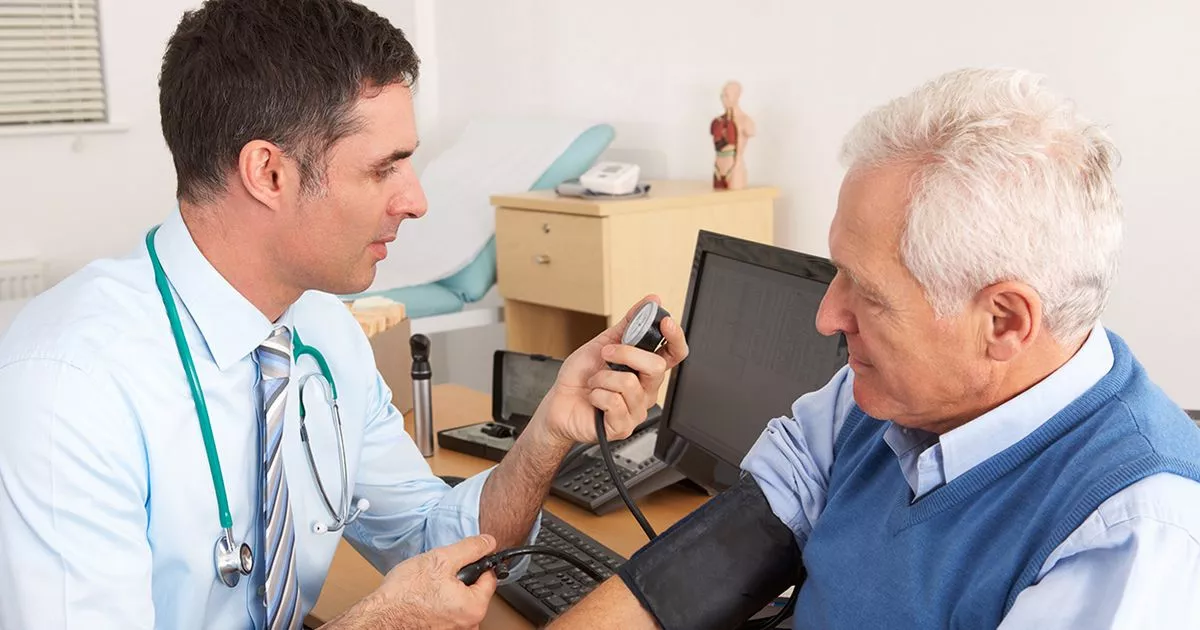By Howard Lloyd,Neil Shaw
Copyright ok

A GP has shed light on the significant changes coming to surgeries across the nation from October 1. The alterations are aimed at putting an end to the 8am scramble where everyone is trying to ring their surgery at the same time to secure an appointment.
Dr Tim Mercer revealed that from October 1, all surgeries in England will be required to adopt and display the You and Your General Practice Charter. He stated: “From October 1, all surgeries will be required to have the new charter, ‘You and your general practice’ and they’ll have to maintain the principles outlined within it.”
According to Dr Mercer, the charter stipulates that GP surgeries must operate from 8am to 6:30pm, Monday to Friday, and patients can get in touch in person, over the phone, online or via the NHS app.
Dr Mercer said: “The current system means you contact the surgery and they give you an appointment at some point in the future that kind of meets your request… some level of triage takes place by the receptionist, but clearly the patients are not happy about this.
“Whether you make your request by phone, online or visiting the practice, you have to give us some details and then we can assess what is best for you based on your clinical need. We will consider your request for an appointment or for medical advice and tell you within one working day what will happen next,” reports Bristol Live.
He explained that from October 1, your requests might lead to an appointment ‘that day, the subsequent day, or it might just be a text message or advice to go to the pharmacy or another NHS service’.
NHS England’s website states: “Your practice will decide what is best for you based on your clinical need. Your practice cannot tell you to just call back the next day.”
Dr Mercer explained: “Although for the majority of circumstances, we’re going to try to give you what you want because often what the patient wants in the end is what they need – or at least we can negotiate it. Practices can’t just say, ‘Just call back tomorrow at 8am’.”
The NHS states: “You might be offered a face-to-face appointment or a phone call with a GP or other member of the practice staff, like a nurse or pharmacist. If you have a carer, they can speak for you with your consent.
“You can ask to see a preferred healthcare professional, and the practice will try to meet your request, although you might have to wait longer for that person to be available. It can be helpful to see the same healthcare professional, particularly if you have a long-term health condition.”
Major Updates from 1 October 2025.
Digital Consultation Platform Must Remain Available Throughout Standard Hours (8am to 6pm).
GP surgeries across England must ensure their digital consultation systems stay accessible during standard operating hours, enabling patients to submit non-emergency appointment bookings, prescription enquiries, and administrative matters. It’s crucial to have safeguards in place to prevent urgent clinical issues from being submitted via online routes inadvertently.
Practices need to actively triage these requests and inform patients about the next steps – automated acknowledgments alone won’t cut it.
While the contract does not require premises to be open for walk-ins at all times, practices must ensure there’s accessible contact, such as a buzzer, monitored phone line, or doorbell system.
Publication of ‘You and Your General Practice’ Charter
By 1 October 2025, practices are required to publish a link to the “You and Your General Practice” (YYGP) patient charter on their website.
This charter sets out mutual expectations between patients and the practice, covering feedback, accessibility, appointment attendance, and support arrangements.
Jess’s Rule, a patient safety initiative, is set to roll out.
From 23 September 2025, NHS England and the Royal College of GPs will implement “Jess’s Rule” as part of a patient safety initiative.
Under this “three strikes and rethink” approach, if a patient has attended three consultations without a diagnosis-or symptoms worsen-the GP must reconsider the case, escalate investigations, or seek specialist input.
The aim is to ensure earlier identification of serious illnesses and reduce diagnostic delays.